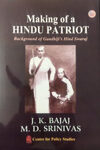Telangana 1: Federalism Violated
February 18 shall go down in history as a black day for Indian democracy. On that day a shaky Central Government, almost sure to lose the elections due within a couple of months, and a resurgent principal opposition, confidently looking forward to forming the next government, joined together to strike a decisive blow against federalism, which is an essential foundational principle for democratic functioning in a vast polity like India. With the willing consent of the Principal Opposition, the Government pushed through the bill to split a major State of the Union, in the face of an explicit resolution passed by an overwhelming majority of the State Assembly rejecting the Centre’s proposal. The deed was done after expelling a large number of the Members of Parliament representing the effected state. What is more, the Parliament was not even given a chance to have a substantive discussion on the provisions of the bill. The whole process was completed furtively, with brief statements on behalf of the Government and the Principal Opposition, followed by quick passage of vital clauses without any discussion or division. No division was allowed even when pressed by members from various other parties. To further underline the stealthy nature of this exercise in breaking a constituent State of the federation without the consent of the various stakeholders, the normal live-telecast of the Parliamentary proceedings was suspended for the duration.
It is unfortunate that all this playing with fire has happened for extremely petty and short-term calculations of electoral benefits. The Congress since independence has, in any case, never been too keen on federalism. For them the possibility of working out some arrangement with the Telangana parties to get support of a chunk of the 17 Parliamentary seats of the region in the next Parliament was good enough reason for pushing the bill in the manner they have done. Besides the temptation of those 17 seats, they had an additional, and perhaps more pressing reason. The Congress President had given her word on the issue, and it is understandable that the Congress would go to any extent to ensure that the word of their President is taken as the law of the land.
But what motivates the BJP, the Principal Opposition? They are unlikely to get any support in the Telangana region, and by going along with the unseemly exercise put up by the Congress, they have lost whatever leeway they were likely to have with the forces favouring united Andhra or at least a more reasoned and consensus-based splitting of the State. Under the circumstances, it is indeed strange that the Leader of the Opposition in the Lok Sabha, in the brief statement she was allowed to make on the issue, expressed the hope that the Telangana partisans shall remember her contribution to their cause and give her credit for being the chinna-amma (the younger mother) of the new state, thus ceding the greater credit to the congress president, the peria-amma (the elder mother).
There is another, almost comic, reason being mentioned for the support of the BJP in this effort. Some of their leaders are reported to have confided that they did not want to be saddled with responsibility of solving the Telangana issue when they form the next government in a few months from now. This is indeed an odd argument. Going by present mood and estimates, there is perhaps a good possibility of their forming the next government. But are vital decisions affecting national interest are taken on the basis of such possibilities?
The BJP is claiming that they have offered support because they are in principle in favour of smaller States. This may be true. But they are also supposed to be in favour of federalism. For those who respect federalism, a resolution by the State Assembly opposing the proposal for splitting of the State, should have been an occasion for further deliberation and discussion with all stake-holders to arrive at a consensus, not to ram the decision through in the indecent manner in which it has been done.
The BJP is also claiming that they have forced the Government to accept amendments that take care of the interests of the Andhra region. But the assurances incorporated in the bill are hardly enforceable. In any case no substantive amendment could have been worked out in such hurry. Even the special powers given to the Governor over Hyderabad to protect the interests of the Andhra region are likely to be struck down by the courts. The BJP has itself been pointing out that such powers cannot be granted without a constitutional amendment, and the BJP had expressed its willingness to facilitate such amendment. By resiling from that position, the BJP has left the interests of the Andhra people completely unprotected.
It is difficult to understand the conduct of the BJP in this matter on any reasonable and rational considerations. But throughout the life of the current Lok Sabha, the BJP seems to have worked in a manner that is difficult to understand. On almost every crucial issue the leaders of the BJP have gone along with the wishes of the Congress, after staging long and ultimately meaningless disruptions. These disruptions have only resulted in the measures proposed by the Congress being passed without any discussion in the Parliament. The same act has been repeated in this case.
The splitting of Andhra without the consent of the Assembly and a large number of representatives of that State in the Parliament raises questions beyond the lack of parliamentary morality and decency displayed by the Congress and the Opposition. Within a federal polity, it should not be constitutionally permissible to split a state without the consent of its elected representatives. The Constitution of India unfortunately makes it possible. Article 3 of the Constitution vests in the Centre the authority to form a new State, increase or diminish the area of any State, alter the boundaries of any State and to alter the name of any State by a law of the parliament. Normally, such a provision can have no place in any federal constitution. But when the Constitution was adopted, India was divided into hundreds of princely states and the British provinces. The process of forming these into viable and linguistically coherent states was yet to be completed. In those circumstances, such a provision in the Constitution was perhaps necessary.
Andhra Pradesh was itself created as a part of the process of reorganisation which was undertaken in the early years of Indian democracy. Though the principle of organising the Indian states on linguistic basis was formulated by Mahatma Gandhi himself and accepted by the Congress in the early years of the struggle for Independence, the process of creating such states was not simple or easy. The Telugu-speaking people, like many other linguistic groups of India, had to wage a long struggle to get a State of their own within the Union; Potti Sriramulu had to fast to death in 1952 for the cause of Andhra. The State of Andhra Pradesh, incorporating all Telugu-speaking territories, was ultimately granted only in 1956. It is true that the merger of Telugu-speaking regions of the former Hyderabad state with Andhra Pradesh was resented by certain sections, but the principle of linguistic provinces was not to be easily trifled with. The principle formed the bedrock of not only the federal polity, but also of Indian unity. While splitting Andhra Pradesh in such a furtive manner, this hallowed principle has also been laid to rest, opening the way for splitting of many other States.
Ideally Article 3 should have been repealed or amended after completing the reorganisation of the states on the linguistic basis. The provision was left untouched, but it was understood that the power the provision confers on the Centre would be utilised only with the consent of all the stake-holders in the concerned states. It is to the credit of the Indian polity that until the current sad episode, all decisions regarding reorganisation of states were undertaken only after ensuring that all stakeholders were on board.
Now that the Government and the principal Opposition together have violated that wise consensus, it has become essential to reconsider Article 3 of the Constitution. There are many other articles in the Constitution which were inserted in view of the peculiar circumstances prevailing at the time of the making of the Constitution. While reconsidering Article 3, it may also be proper to review all those articles to bring them in consonance with the reality of India today. The parliamentary transgressions of the last few days in the context of the splitting of Andhra have made the task urgent. Therefore, a review of Article 3 and other similar articles of the Constitution should be one of the early tasks to be undertaken by the next government, which shall hopefully be more secure in its parliamentary mandate and therefore more respectful of the decencies expected in a democratic federal polity.
Dr. J. K. Bajaj
Centre for Policy Studies
policy.cpsindia@gmail.com
19 February 2014



